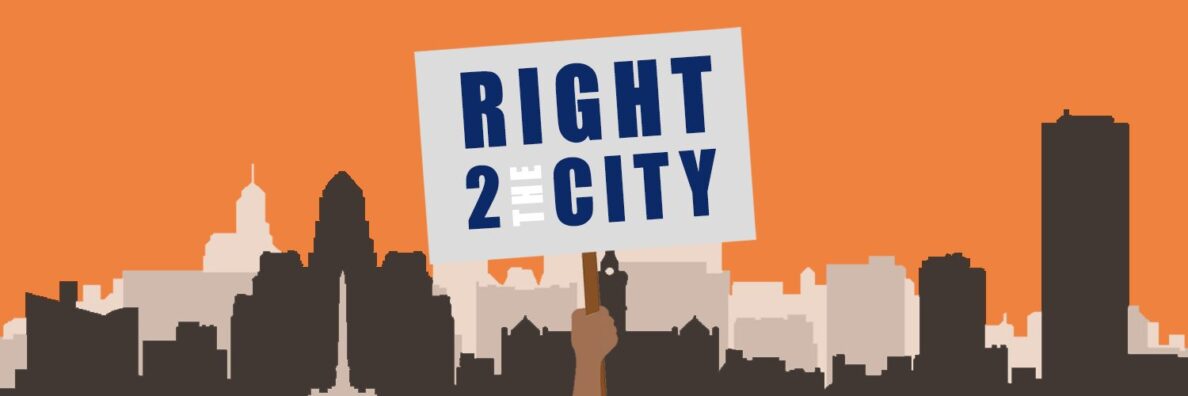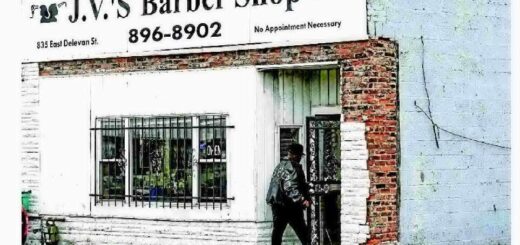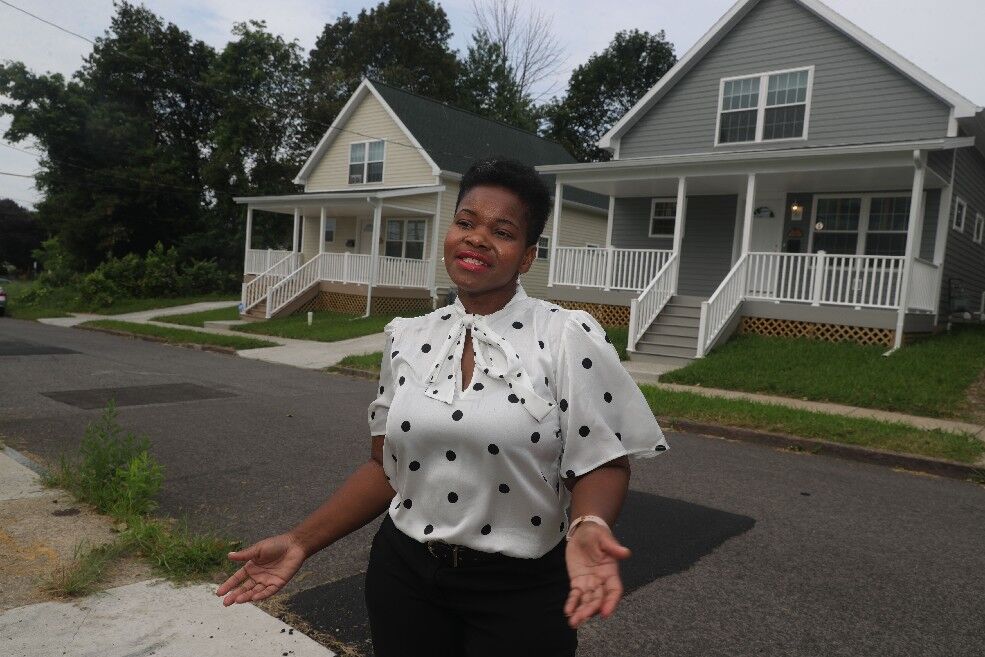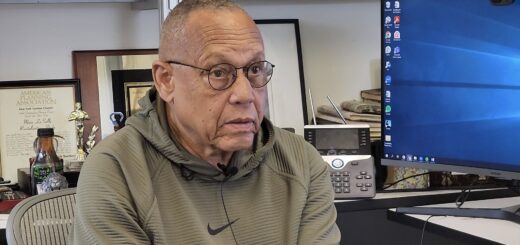UB-Community partnership helping to blunt effect of pandemic on Buffalo’s most vulnerable citizens
A powerful partnership that brought UB faculty and community leaders together to fight against health disparities has allowed the community to respond more effectively to the pandemic than many cities across the nation, university and community leaders said today.
The partnership between UB’s Community Health Equity Research Institute, the African American Health Equity Task Force and the Buffalo Center for Health Equity also puts Western New York in a better position for the challenges that lay ahead later this fall and winter, they said.
One of the most telling indicators is that while the region couldn’t escape the ravages of the pandemic, it is one of the few nationally that managed to reduce COVID-19 fatalities among African Americans over the course of the pandemic. The UB-community partnership played a key role.
“If you look at national numbers, 34% of COVID-19 deaths are among African Americans,” said Kinzer Pointer, pastor, Liberty Missionary Baptist Church, and co-convener, African American Health Equity Task Force. That’s in contrast to African Americans comprising a much smaller proportion of the U.S. population, at 13%.
But in Erie County, Pointer noted, since the pandemic began, African Americans have comprised 16% of COVID-19 deaths and they make up 14% of the county’s population.
“We may be the only community in the country that’s been able to mute the impact of this pandemic, and that’s directly attributable to the work we did with our university partners that started in previous years,” he said. “There is a real commitment to shoulder this together and not just watch people die.”
“UB is our partner in ways that it never had been before,” said Pointer. “UB is now actively involved in community work and that should be attributed directly to President Tripathi. He saw the value of it, listened carefully and then gave resources, encouragement and support to the ones actually doing the work.
“The partnership situates us well for what’s coming,” he added.

That cautious optimism was also expressed by Tim Murphy, SUNY Distinguished Professor in the Jacobs School of Medicine and Biomedical Sciences at UB and director of the institute. “The fact that this community-university partnership was able to mitigate the high mortality among African Americans in the first wave puts us in a position to build on that achievement during this coming flu season and a possible second wave,” he said. “And it’s something that can be replicated in other communities.”
The critical difference has been in the way the UB institute was organized and built, according to Henry Louis Taylor, professor in the School of Architecture and Planning, and the institute’s associate director. “The Community Health Equity Research Institute evolved out of activities UB faculty became involved with through the African American Health Equity Task Force,” he said.

‘A voice and a vote’
“UB and the community came together to say we want the community’s needs and desires to be the engine that drives this process,” he said. “We have created a unique governing structure that has integrated community residents in all layers of the institute so that the community will always have a voice and a vote and a perspective on every single thing we do.”
Even before “New York State on Pause,” which started March 22, UB faculty were collaborating and advising the groups led by local clergy, such as Pointer and Rev. George F. Nicholas, pastor of Lincoln Memorial United Methodist Church and convener of the African American Health Equity Task Force. They were mobilizing with local groups, such as the Visiting Nurses Association and the National Witness Project, to add rapid testing centers, and to get food and other resources to residents.
“This unique collaboration rests on the strongest possible foundation,” said state Sen. Tim Kennedy. “UB, with the full complement of health sciences disciplines, has its nationally renowned medical and public health experts at the table working side by side with our community’s tireless clergy, like Pastor Pointer and Rev. Nicholas, and their absolutely dedicated volunteers,” he said. “It is the kind of collaboration that is helping this region mount an effective response to this devastating pandemic.”
While Taylor’s urban planning expertise helped focus resources within neighborhoods, the infectious disease specialists in the Jacobs School were in conversation with those coordinating neighborhood canvassing. During the peak days of the pandemic, the partners helped 15 churches establish call centers and work in neighborhoods to find out what residents needed, to coordinate neighborhood testing, to distribute food and PPE, and to provide transportation to health care facilities.
UB faculty helped facilitate communication campaigns, writing Facebook posts and op-ed articles to encourage people to wear masks and to practice social distancing.
“UB is an essential part of the system,” Taylor said. “None of the people who have boots on the ground were infectious disease specialists but they could turn to Tim Murphy and Alan Lesse, who are, to draw on their expertise. At the university, our job is to pull together scholars on this campus to bring the best minds together to find solutions.”
Nancy Nielsen, senior associate dean for health policy in the Jacobs School and a member of the African American Health Equity Task Force, said the difference lies in how research at UB is being used to effect change.
“Rather than be a university that describes disparities, such as how long you live depends on where you live, we have to try to change it and to do that, we need to understand it,” she said.
As the institute’s director, Murphy has worked to explore the wide range of factors — the social determinants of health — that created the disparities that this pandemic has laid bare. They include, prior to the pandemic:
- Low levels of employment — 15% of Buffalo’s Blacks were unemployed versus 5% of whites.
- Depressed average home values — $48,000 for Blacks vs. $138,000 for whites.
- Less access to higher education — 14% of Blacks in Buffalo have a bachelor’s degree vs. 35% of whites.
One statistic is especially revealing, that of maternal mortality. While the number of women who die during pregnancy has steadily fallen throughout the developed economies of the world, the rate of maternal deaths per 100,00o live births in the U.S. has risen sharply recently, from about 17.5 in 2000 to 26.4 in 2015.
“The fact that African American women in particular face such daunting odds even when undergoing childbirth in this country demonstrates what our community is up against even with normal medical procedures,” said Crystal Peoples-Stokes, Assembly majority leader. “It is critically important that during a global pandemic we make sure that UB and its community partners are able to take advantage of all possible resources as they continue to fight this ongoing, global battle.”
The institute’s research agenda includes studying the dynamics inside African American communities that make them vulnerable, including the high proportion of essential workers, multi-generational households and households where self-isolation is difficult or impossible.
“We are aware that the coming fall and winter will present new challenges, but together with our partners, we are confident that our experience so far provides this community with a strong foundation going forward,” said Murphy.
Taylor concurred, adding: “What’s unique is that we are using health disparities and the social determinant of health as a framework for all the inequities in African American communities, such as poor housing, deplorable physical conditions and the lack of jobs. At the end of the day, the goal is not just to mitigate issues like the pandemic, but to eliminate the conditions that make these populations so vulnerable in the first place.”
Author Profile
Latest entries
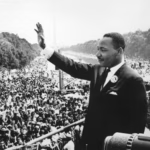 Henry Louis Taylor, Jr.01/20/2025Reflections on Martin Luther King, Jr.’s Dream
Henry Louis Taylor, Jr.01/20/2025Reflections on Martin Luther King, Jr.’s Dream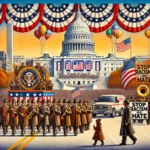 Henry Louis Taylor, Jr.01/09/2025The Trump Inaugural Parade is a Political Event
Henry Louis Taylor, Jr.01/09/2025The Trump Inaugural Parade is a Political Event Henry Louis Taylor, Jr.05/04/2024The Occupation of Hayes Hall: Student Rebellions and Remaking the U.S. UniversityThe Occupation of Hayes Hall
Henry Louis Taylor, Jr.05/04/2024The Occupation of Hayes Hall: Student Rebellions and Remaking the U.S. UniversityThe Occupation of Hayes Hall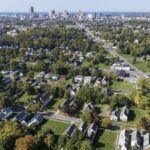 Henry Louis Taylor, Jr.03/21/2024Ryan’s infill housing strategy is the right plan for Buffalo
Henry Louis Taylor, Jr.03/21/2024Ryan’s infill housing strategy is the right plan for Buffalo
